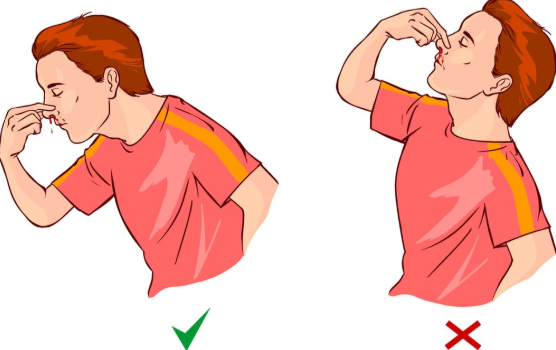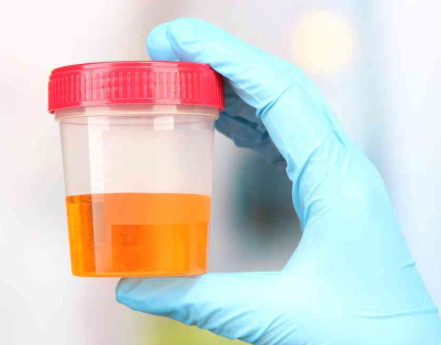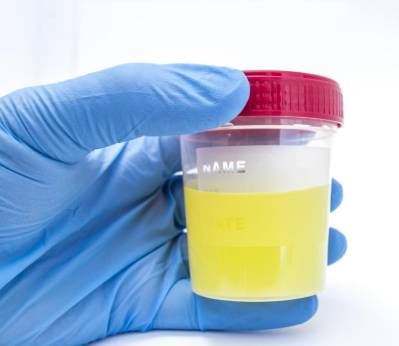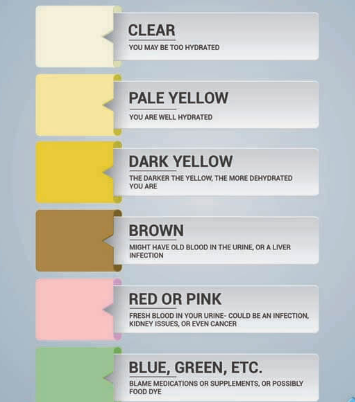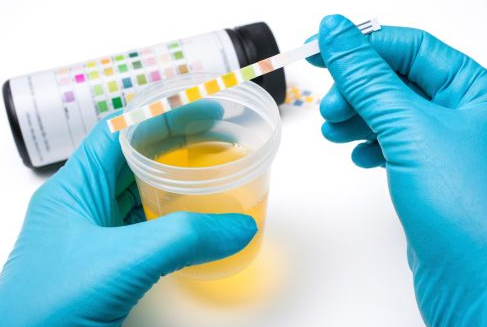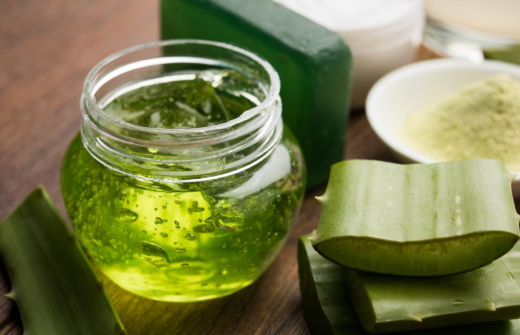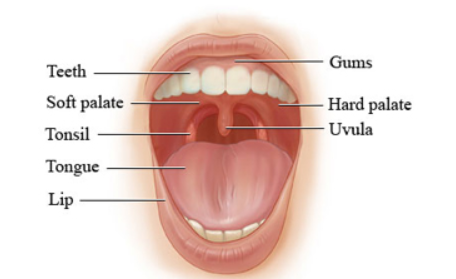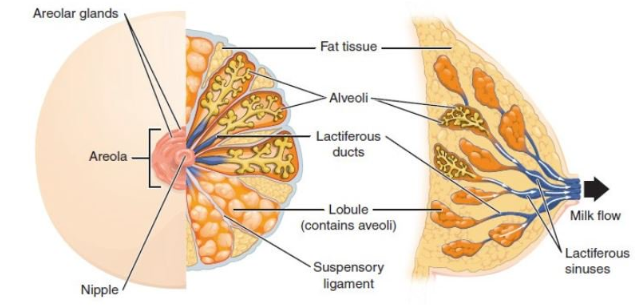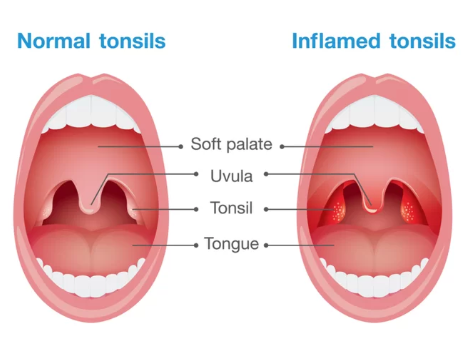A nosebleed can be explained as an attack that causes bleeding from the nose. The nose is made up of a thin lining that covers a number of tiny blood vessels. These blood vessels are very close to the surface of the lining in that they can be easily damaged. In case of damage to the skin lining due to some reason, you will then experience some bleeding from the nose which is then referred to as nosebleed.
When you find out that you are having a nosebleed, or even when you blow out your nose and realize some blood can cause you some worry, and in worse case an embarrassment. However, the truth of the matter is that, this normal body phenomenon is very common especially during winter time, and it should never be confused with something serious.
There are two types of nosebleeds namely; anterior nosebleeds and posterior nosebleeds. These nosebleeds can be explained as follows:
- Anterior nosebleeds
Anterior nosebleeds occur when the blood vessels that are found in the front of your nose break causing blood to come out. These are the most common types of nosebleed and they usually begin with some blood suddenly coming out of one of your nostril when you are standing or sitting down.
- Posterior nosebleeds
These are types of bleeding that occur in the far back region of the nose. Posterior nosebleed has its roots high up and deep down in the nose, and this is the reason why blood from this type of nosebleed usually flows down back in the mouth and throat, even if the patient is standing or sitting. However, know that even blood from an anterior nosebleed can as well flow down in the back of your mouth or throat when you are lying down. For you to tell the difference between anterior and posterior nosebleed is by how the blood will flow while you are standing or sitting upright.
What Causes a Nosebleed
There are numerous things that can result to nosebleed as sources have revealed. The main job of our noses is to warm and humidify the air we breathe in. in most cases human beings don’t give attention to the activities of the nose until they are attacked by a stuffed up nose from cold, sneeze due to allergy or realize blood dripping from their nose. Nosebleed is usually very disturbing especially to people who have never experienced it before. Some of the reasons behind nosebleed are discussed below:
Causes of nosebleed
Nosebleeds are never serious but if they become very frequent or heavy they can result into serious health issues, or they can be a sign of serious conditions such as high blood pressure or a blood clotting disorder, which should be addressed by your medical provider. Some of the causes of nosebleed include the following:
- Broken nose
A broken nose can be a break or crack in the bone or cartilage that supports the nose. In most cases breakage in the nose is caused by trauma or injuries to the nose. Maybe you were hit by something on your nose, and since the bone that keeps the nose in position is not that much strong, this can result into breakage. Any serious injury to the nose can result into nose bleeding as the inner lining of the nose is very thing with blood vessels all over.
- Foreign body in the nose
A foreign object in the nose is something that is in the nose that was not supposed to be there. For instance, even a nose ring can result to an injury that will leading to nosebleed. Small kids are known to play with different kinds of objects and they may try to fit some of these objects in the nose, and maybe cause a blockage. This is very dangerous as such kind of happening may call for a surgery to remove the object. Even when you have stuffed up nose, trying to blow it may cause a breakage of the blood vessel and therefore result in nosebleed.
- Allergic rhinitis
Also referred to as hay fever, some people have very serious response to chemicals that cause allergy. This may result to symptoms like sneezing and itchy eyes. As we said early, sneezing involves exerting pressure in the nose; the nose is made up of an inner thin lining that covers numerous capillaries. This pressure may cause breakage in the nose thus leading to bleeding. Therefore, it is very important to keep off chemicals that may cause you allergic reaction more so if your body is very reactive.
- High blood pressure or hypertension
This is a serious condition whereby pressure applied on the blood to facilitate its movement is very high than the normal rate. In most cases this is usually caused either by blockage of some blood vessels, or thinning of some blood vessels maybe due to overweight. Increased pressure in the blood vessels is severe conditions that can even results into breaking of essential blood vessels and therefore it is a condition that should be responded to very fast before it result to serious problems.
The condition can result in fracture in the nose blood vessels nosebleed. High blood pressure is associated with few or no symptoms and therefore many people may have it without knowing.
- Flu or common cold
One of the major symptoms of flu is sneezing up all the time. A cold is a common viral infection that affects the upper respiratory tract that includes the nose and throat. More symptoms for this condition include runny nose, coughing, and a sore throat. Sneezing may result to breakage of the blood vessels in the nose thus causing nosebleed. This condition is usually treated by over the counter medication and it may take 5 to 7 days to heal.
- Low platelet count (thrombocytopenia)
Platelet is a type of blood component that facilitate clotting or stopping more bleeding. Therefore a low platelets count or thrombocytopenia as it is commonly known can range from a mild condition to severe depending on the cause. If you have low platelets count this means you’re bleeding will be longer than normal and even a small fracture that may not facilitate bleeding in normal situation may cause much bleeding to the affected person. Symptoms of this condition may include severe bleeding.
- Deviated septum
This is a condition in the nose where a septum (inner part of the nose) is not in a normal position it is supposed to be. This may lead to health complications such as difficulty in breathing. The condition can as well result to bleeding in severe cases. This should be addressed in your doctor’s office and treatment may include minor surgery to rectify the septum.
- Leukemia
This is cancer of the blood cells. It is a very serious condition that may also be associated with nosebleed as one of the many symptoms. It is a condition that requires immediate medical care.
- Other causes
There are many other causes that may result to nosebleed. Some are very severe while others can be treated easily. More causes of nosebleed include:
- Christmas disease (hemophilia B) – a genetic disorder that cause blood not clot properly
- Factor x deficiency – a condition caused by not having enough protein that is referred to as factor x in the blood
- Ear barotrauma/ airplane ear – is a condition that results in ear discomfort when one experiences changes in pressure caused by altitude changes
At the end of this post, we shall give some of the sources that will provide you with more information on nosebleed causes.
How to Stop a Nosebleed Permanently
Most nosebleeds can easily be stopped at home. However, if you find it hard to stop the condition or it stops and come back after a short time with large amount of blood, consult your doctor. A chronic or persistent nosebleed are usually stopped by the use of a heating instrument or a chemical swab, or in other cases through application of a topical medicine known as thrombin that facilitate local clotting of the blood. Your doctor may use nasal packs to stop nosebleeds when other conservative measures fail to work.
You are not supposed to take aspirin or any other blood thinning agents when having a nosebleed as this may worsen the situation. Instead, you should seek more advice from your doctor if these drugs were prescribed earlier.
How to stop nosebleed
- First aid for stopping nosebleed
If you develop a nosebleed, you should immediately sit down and bend forward. Sitting is much better than lying down, because if you keep the head above the level of your heart, it will help in reducing the bleeding. Bending forward is very important because it enables the blood to drain out through the nose rather than flowing down in the throat.
You can then hold the soft part of your nose together until the bleeding goes down completely. This whole process may take around 5 to 10 minutes depending on your ability for blood to clot. Also, when you place an ice pack on the bridge of the nose, it may help to stop the bleeding immediately.
How to stop a common nosebleed
A common nosebleed can be handled without necessarily involving treatment from your doctor, so long as you follow first aid steps bit by bit. The following are some of the basic steps you can follow on how to stop nosebleed at home.
Step 1
Bend forward slightly with your head tilting forward. This is because when you lean on your back or when you tilt back your head you will allow the blood to flow back into the throat, which may cause gagging or inhaling the blood.
Step 2
In case any blood dripped in your throat or back mouth, spit it out immediately. This is because it may result in nausea which may eventually cause throwing up, or in severe cases diarrhea if it is swallowed.
Step 3
In a gentle manner, blow out any blood clots out of your nose. The bleeding may increase a little bit when you do this but it very important.
Step 4
Hold together the soft part of your nose with your index fingers, and then press it towards the face. Do these as you breathe through your mouth. Hold your nose in this way at least for five minutes. Repeat it as much as possible to make sure that bleeding has stopped.
Step 5
Stay calm as you keep your head higher than the level of your heart to avoid more bleeding. Avoid lying flat or putting your head between your legs. This may make the condition worse.
Step 6
Apply an ice pack on your forehead or on the bridge of your nose and on the cheeks afterwards. This will help to numb the nose and therefore allow faster clotting.
There are numerous nasal sprays that may be prescribed by a chemist or your medical provider that also be helpful while you carry out your care. They may offer short-term help when it comes to a congestion and minor bleeding in case you do not have high blood pressure. However, you medical provider may advise on how to use the sprays so that they may not cause more problems.
You may as well stuff some cotton or tissue in your nose while you wait for the condition to restore.
How to stop nosebleed completely
- When you are attacked by a nosebleed rest with your head elevated at 30 to 45 degrees even when you are not busy.
- Avoid blowing your nose or putting anything into it if can easily nosebleed. If you have to sneeze, make sure you open your mouth to make sure not much pressure is applied in your nose
- Avoid straining during bowel movements. You may use a stool softener
- Avoid straining or lifting heavy loads at all times
- Try to keep your head higher than the level of your heart
- Avoid smoking
- Observe your diet to make sure you eat more of soft, cool foods and beverages. Keep off hot liquids for at least 24 hours
You may repeat the steps we have outlined above in case you are suffering from frequent nosebleed. If the condition is much worse you have to consult your doctor very urgently or visit an emergency room.
What to do after a Nosebleed
There are numerous things you should do immediately you have finished nose bleeding. These things may prevent further nosebleed. While you are at your home, you may try to follow some of the things that we are going to discuss below. To prevent another nosebleed:
- Keep your nose moist
You may put some small amount of petroleum jelly in the nostrils to keep the area moist. You can as well use a saline nasal spray. You are not supposed to put anything else in your nose not unless it is an advice from your doctor. Avoid using oil-based lubricants if you use oxygen therapy as they may be flammable.
- Use a cool mist humidifier
A mist humidifier is very useful when it comes to improving the air moisture content around your house. This will help your nose to stay moist.
- Avoid picking or blowing your nose after a nosebleed
You may take at least a week without practicing these activities to allow the broken lining to heal. If you pick your nose you may damage it and cause another bleeding. Avoid bending over or doing strenuous activities as it may cause another bleeding.
- Avoid tobacco
You should keep off from irritants such as tobacco and other chemical sprays that may cause sneezing and other complications.
- Follow your healthcare’s direction
Make sure you keep up with every prescription and advice from your doctor to avoid more issues with your nostrils.
How to Prevent Nosebleeds
The following are some of the preventive measures that you should put on your fingertips in case you are a common patient of nosebleed:
- Make sure a humidifier is at your home to increase the air moisture in your surrounding
- Apply ointments such as Vaseline in your nose to moisturize them
- Avoid any activities that may result in injuries to your nostrils lining such as forceful blowing
- Keep off cold and allergic medications or any other thing that may cause you to develop an allergy
- Stop smoking as it dries up your nostrils in the inside
- Discuss your medications with your medical provider
- Spray Afrin into the nose
- Blow any clots out of your nose
More references
- How to stop a nosebleed fast: http://www.health.com/mind-body/how-to-stop-a-nosebleed-fast
- What causes nosebleed: https://www.healthline.com/symptom/nosebleed
- Nosebleed ( epistaxis): https://www.medicinenet.com/nosebleed/article.htm
